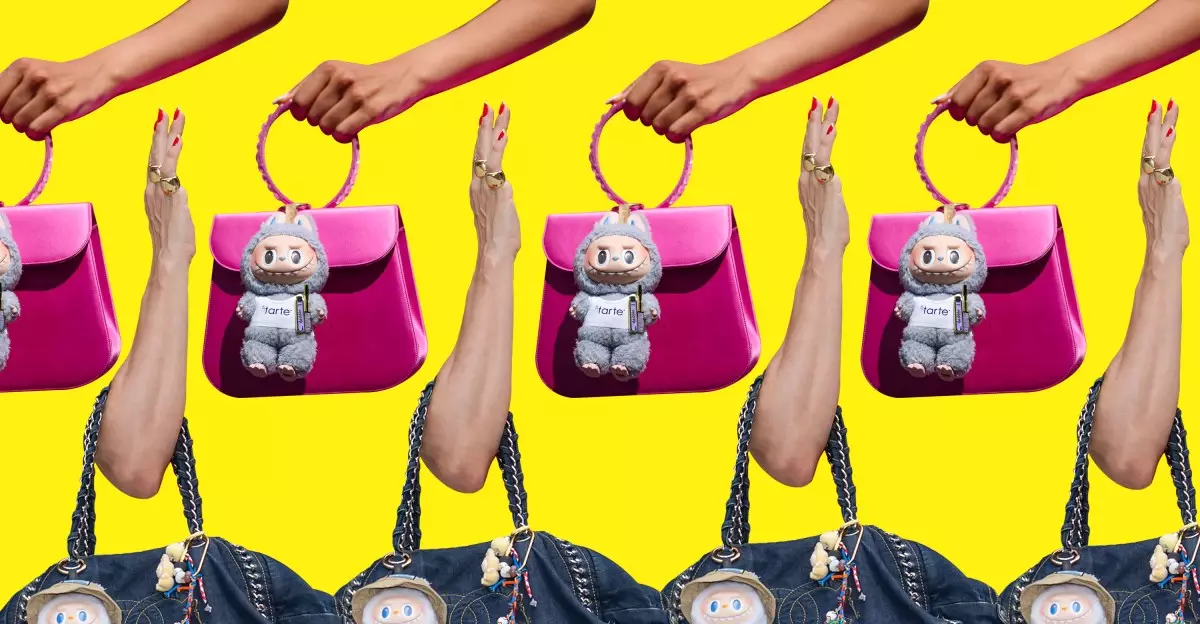In today’s fast-paced, digitally driven world, the thrill of the chase often outweighs the reward itself. The quest to acquire a coveted item—like the trendy Labubu figurines—has evolved into an intense, almost gladiatorial ordeal that tests patience, strategic thinking, and resilience. Unlike traditional shopping experiences that prioritize convenience and immediacy, platforms like Pop Mart have transformed buying into a game of skill and endurance. This shift reflects a broader cultural change: increasingly, we seek not just possessions but the adrenaline rush and validation that come from overcoming hurdles. The process is deliberately designed to be complicated, discouraging impulse buys and rewarding those willing to engage deeply or, more accurately, to endure a form of digital trial by fire.
The digital landscape amplifies this frustration, turning what once was a straightforward purchase into a competitive sport. The Pop Mart app’s display of limited stock — with boxes quickly grayed out and reappearing in rapid succession — creates a high-stakes environment reminiscent of Black Friday melee. Buyers, driven by social media hype, often find themselves rapidly tapping, refreshing, and sometimes failing altogether, their efforts punctuated by error messages and app freezes. These obstacles are no accident; they serve to elevate the experience from mere shopping into an engaging challenge. The sense of victory, therefore, is not just about owning the toy but about navigating the chaos successfully, asserting control amidst the randomness.
This high-pressure environment fosters an almost ritualistic approach among collectors, who spend hours watching live streams, following tips from seasoned enthusiasts, or deploying hack-style tricks to increase their odds. Such tactics are emblematic of a modern cultural phenomenon: how we embed gameplay and strategic thinking into everyday routines. The act of hunting for a Labubu becomes a metaphor for perseverance, patience, and ingenuity. Not everyone can—or should—win instantaneously; the hurdles serve to filter the truly dedicated from casual consumers, making the eventual acquisition feel hard-earned and significant.
The Illusion of Value: Why the Journey Matters More Than the Prize
While some see collectibles like Labubu as simple toys, their true appeal lies deeper. The allure isn’t confined to the figurine’s cute exterior or rarity but rooted in the process of obtaining them. The effort involved, the strategic decision-making—these are what elevate a mere purchase into a memorable event. It’s easy to compare this to gambling, where the rush of anticipation and the unpredictable outcome create an addictive cycle. Each successful grab feels like a small victory, a badge of survival in a digital wilderness.
The paradox is that many collectors recognize the real value in the chase rather than the item itself. Forums brimming with advice, sharing stories of close calls, and celebrating rare finds demonstrate that these toys act as symbols of persistence and luck. Acquiring a Labubu—especially a rare color like “Hope”—becomes a testament to one’s dedication and cunning. In some ways, it’s less about the toy and more about proving one’s ability to navigate the chaos, to beat the system designed to be unwieldy. The unboxing, therefore, is just the culmination of a well-orchestrated challenge, not necessarily the ultimate goal.
This intricate dance between effort and reward introduces a new dimension to collecting culture. The very difficulty of obtaining a Labubu elevates its status, making it more than just a cute figurine—it becomes a trophy of the digital age’s volatile, unpredictable, and competitive shopping real estate. The pricing, which is relatively modest at $27.99, doesn’t matter as much as the story of how it was finally secured. The value becomes a narrative, a shared experience within a community that thrives on the thrill of the hunt.
Consumer Culture and the Paradox of Desire
What makes the Labubu phenomenon so revealing is how it exemplifies contemporary consumer culture’s obsession with exclusivity and the emotional highs of rarity. As social media influencers churn out unboxing videos and viral streams reiterate the hype, the hype cycle feeds itself—drawing new collectors into the vortex. Young enthusiasts, in particular, seem captivated not just by the toy but by the social capital and identity that come with triumphing over the system. The process turns into a display of perseverance, patience, and digital savvy—a badge of honor in a social landscape where status is often validated through material and experiential victories.
However, the intense difficulty also exposes a darker side: the commercialization of chaos. The system effectively discourages casual buying, pushing consumers into repeated attempts, often leading to frustration, burnout, or even dependency. This manufactured scarcity mirrors gambling addiction, subtly encouraging a compulsive pursuit of the ‘hit’ that comes with each successful acquisition. It’s an ecosystem driven by the promise of reward that remains elusive for many but becomes that much sweeter when finally achieved.
Ironically, the true worth of a Labubu isn’t in its physical form but in what it represents: our willingness to endure chaos for a fleeting chance at perfection. The eventual arrival of the toy, scheduled for September, will mark the culmination of a journey that’s equal parts digital game, social experiment, and cultural artifact. Whether the hype continues or fizzles out, the core lesson remains clear: in a world increasingly obsessed with instant gratification, it’s often the struggle—in all its frustrating, maddening glory—that makes the eventual victory so remarkably sweet.


Leave a Reply